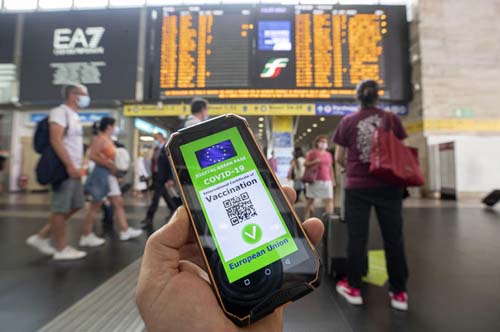Italy bids farewell to covid Green Pass

Rome: The Italian government has dropped practically all requirements for the Green Pass – the digital certificate proving the holder has been vaccinated, tested negative or recovered from covid – with effect from May 1.
The lifting of these restrictions also includes those relating to the so-called Super Green Pass which can only be obtained by those who have been vaccinated or recovered from covid.
The Super Green Pass system will however remain in force until 31 December for those visiting hospitals and nursing homes, as well as for healthcare workers and employees of care homes.
Saturday 30 April effectively marked the end of the Green Pass system which at its height earlier this year was required for practically all aspects of life in Italy, including the workplace, with the exception of pharmacies and supermarkets.
When it was first introduced last June, a few weeks before the EU digital covid certificate, the Green Pass was designed primarily to allow people to attend large events, such as weddings, or to visit nursing homes.
However its scope was expanded progressively by the Italian government, steered by health minister Roberto Speranza and prime minister Mario Draghi.
The Green Pass was not without controversy and resulted in regular protests in cities around Italy, notably in Trieste where police turned water cannons on dockers staging a sit-in at the port last October.
Some protestors at No Green Pass rallies were criticised harshly for comparing themselves to Holocaust victims, including in Novara where dozens of people dressed in the style of Auschwitz prisoners.
Over recent weeks however the Green Pass system has been gradually wound down following the expiry of Italy’s covid state of emergency – after more than two years – at the end of March.
Also from 1 May the obligation to wear masks will no longer apply in restaurants, bars, shops, supermarkets and museums.
Until 15 June masks will continue to be required on all forms of public transport, in hospitals and nursing homes, in cinemas and theatres, at concerts and indoor sporting events, and in schools and universities.





